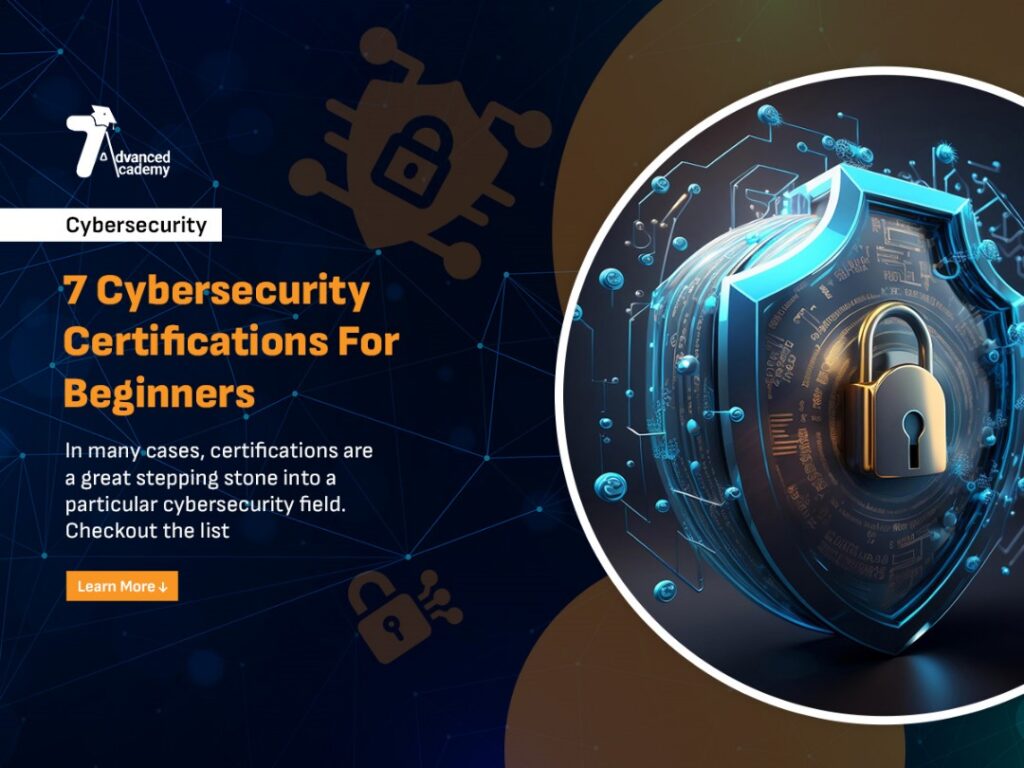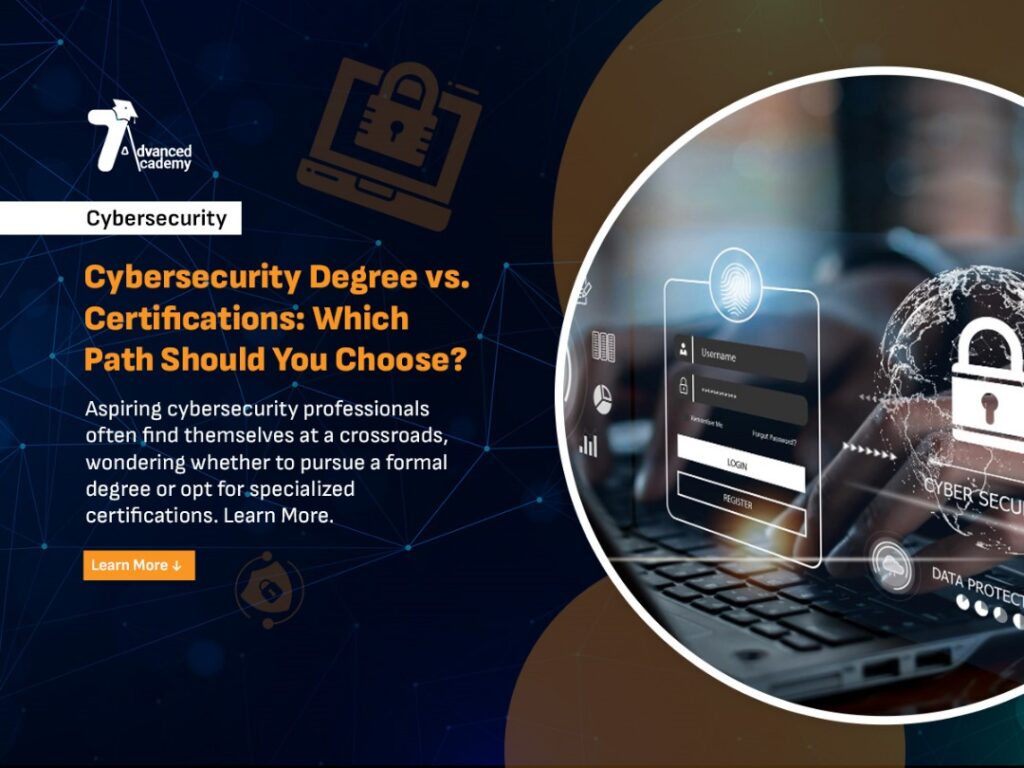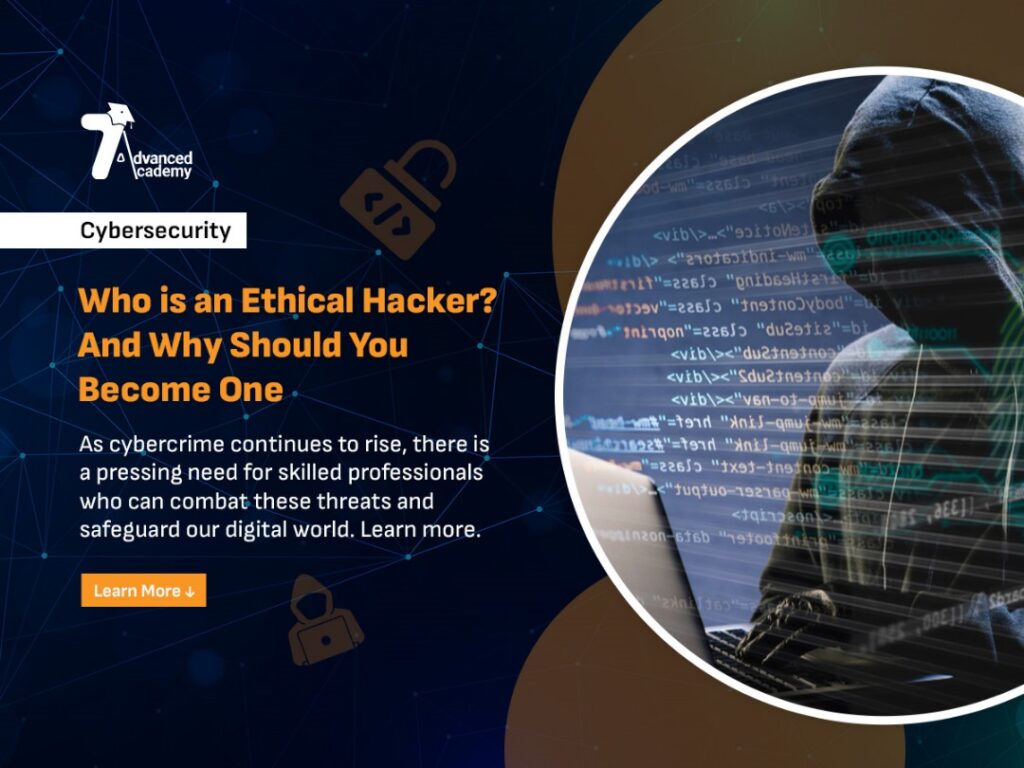Unlike a cybersecurity degree program which proposes a comprehensive curriculum covering various aspects of computer network security, cybercrime, cyber law, cryptography, risk management, and ethics, certifications target specific domains within cybersecurity. Allowing professionals to hone their expertise in areas such as network security, ethical hacking, or incident response.
In many cases, certifications are a great stepping stone into a particular cybersecurity field.
For beginners interested in starting a career in cybersecurity, there are several entry-level certifications that can help lay a solid foundation of knowledge and skills in a specialized cybersecurity domain.
Some Popular Cybersecurity Certifications For Beginners
1. Certified Ethical Hacker (CEH)
The CEH certification focuses on ethical hacking and penetration testing techniques. It provides insight into how hackers operate and how to defend against their tactics.
2. CompTIA Security+
This is another widely recognized entry-level certifications for cybersecurity. CompTIA Security+ covers basic cybersecurity principles, network security, cryptography, and more.
3. Cisco Certified CyberOps Associate
This certification from Cisco focuses on cybersecurity operations and covers security monitoring, incident response, and network intrusion analysis.
4. Certified Information Systems Security Professional (CISSP)
While CISSP is generally considered an advanced certification, it is still possible for beginners to take it. It covers a wide range of cybersecurity topics, including security policies, risk management, and more.
5. Certified Cybersecurity Analyst (CySA+)
Offered by CompTIA, this certification emphasizes the skills needed to detect and respond to cybersecurity incidents.
6. GIAC Security Essentials (GSEC)
This certification from Global Information Assurance Certification (GIAC) covers essential knowledge of information security concepts and practices.
7. Certified Network Defender (CND)
The CND certification focuses on network security and defense strategies to protect an organization’s information assets.
Which Certification Do You Prefer?
Before diving into any specific certification, it’s essential to assess your existing knowledge and skills to choose the most appropriate one. Additionally, consider your career goals within the cybersecurity field, as different certifications may align better with specific job roles (e.g., penetration tester, cybersecurity analyst, network security specialist, etc.).
Study Cybersecurity At Seven Advanced Academy
Thanks to our partnership with EC-Council, we certify students in one of any EC-Council’s 40+ certifications.
Learn more about our 7 months customized cybersecurity program that covers both the CEH and the CND curriculum.
Remember that hands-on experience is equally important, so don’t limit yourself to just obtaining certifications. Practice and work on real-world projects to reinforce your learning and gain practical skills.
Through EC-Council, you’ll have access to online resources and virtual labs. You shall have the opportunity to participate in Capture The Flag (CTF) events as a team. All these are great ways to gain hands-on experience in cybersecurity.




